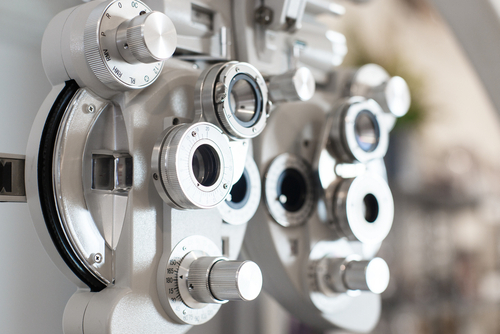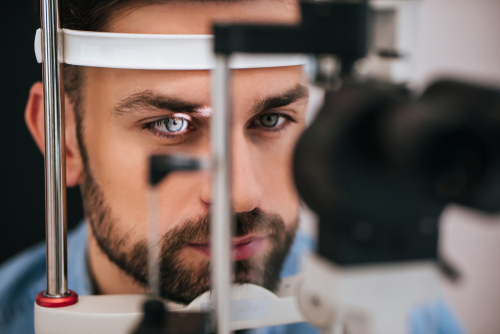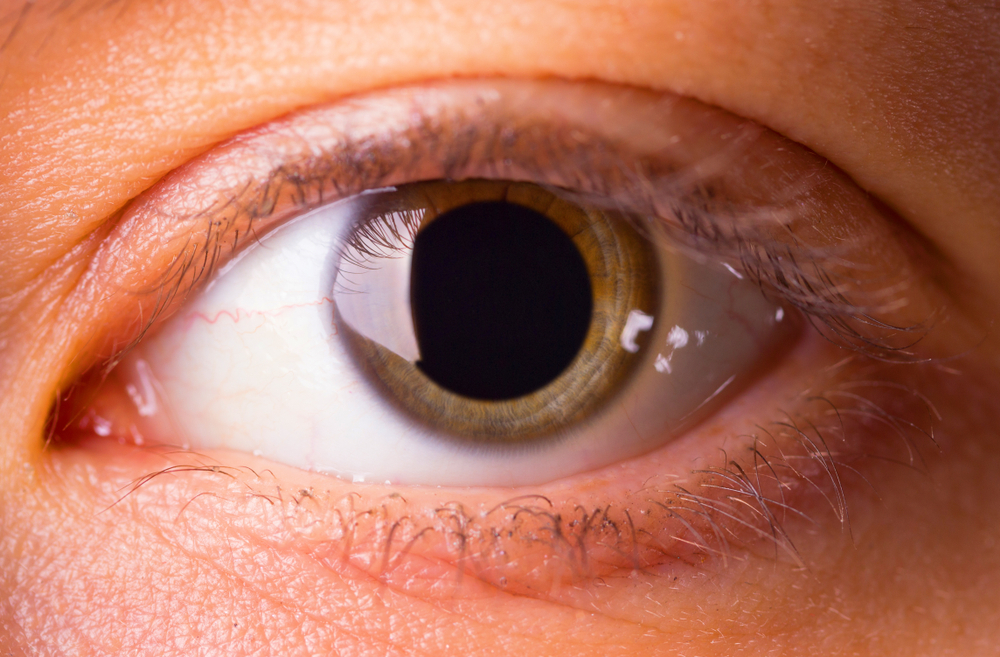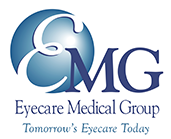Routine eye care is an essential part of maintaining good eye health and overall well-being. Regular eye exams not only help preserve clear vision but also play a crucial role in detecting potential eye conditions early on.
Vision is a complex system that requires specific subspecialists working together to maintain healthy eyes and good vision for the patient. Optometry plays a key role in this. Think of the optometrist as your primary care provider of the eye world. Do you see an orthopedic surgeon for your annual physical exam or instead, do you see a Primary Care Physician (PCP)? Your optometrist is the PCP of your vision. They evaluate the health of the eye and visual system working with you to isolate any potential issues. When appropriate the optometrist will refer and co-manage with sub-specialty ophthalmologists like Eyecare Medical Group.
EMG works with an amazing network of optometrists that provide excellent primary care for the eyes. We work closely with them to coordinate your care. This allows for the right care, at the right time, by the right expert. It is typically best to start with an optometrist to assess the underlying issue and to outline and coordinate the best possible course of action. While you may not be at 53 Sewall St. in Portland Maine, by working with an optometrist within our network you will always be an EMG patient. When the time comes your optometrist will coordinate with us to have your ophthalmological needs taken care of. Many eye conditions can be managed, and the vision of the patient maintained relatively well. This, however, is often dependent on early detection and intervention. A short appointment now can save your vision later.
What Happens During a Routine Eye Exam?
During a routine eye exam, your eye doctor will perform an array of tests and evaluations to thoroughly assess various aspects of your vision and eye health to identify any potential concerns. These evaluations play a pivotal role in maintaining and safeguarding your vision.
Here are some of the tests and evaluations you can expect to have at your routine eye exam at Eyecare Medical Group:

Vision Testing
One of the fundamental tests performed during a routine eye exam is measuring your visual acuity. This involves reading an eye chart to determine how well you can see at various distances.
This test helps identify common refractive errors like nearsightedness, farsightedness, and astigmatism. Understanding how well you can see will help your eye doctor determine whether or not a glasses or contact lens prescription may help you.
Assessing Eye Movements
Another crucial aspect of the exam involves assessing your eye movements. This evaluation examines the coordination and alignment of your eyes as they move together.
Any abnormalities in eye movement could indicate underlying issues. By assessing eye movements, your eye doctor can identify potential conditions such as strabismus or amblyopia.
Evaluating Peripheral Vision
Peripheral vision, also known as side vision, is assessed to determine your overall field of view. This is important for activities such as driving and spatial awareness.
During the test, you’ll be asked to focus on a central point while objects are shown to you in your peripheral vision. This test can help detect conditions like glaucoma, which can lead to gradual peripheral vision loss.
Eye Pressure Testing
Eye pressure testing is a very important part of a routine eye exam. Higher-than-normal eye pressure levels can indicate the presence of glaucoma.
Slit Lamp Examination
A slit lamp is a specialized microscope that helps your eye doctor examine the intricacies of your eyes to check for any abnormalities or changes. Your eye doctor can look at the structures at the back of your eyes during this part of the exam.

Why Are Routine Eye Exams Important?
Routine eye exams are vital for several reasons. They allow your eye doctor to identify vision problems like nearsightedness, farsightedness, and astigmatism.
More importantly, these exams enable the early detection of eye conditions such as glaucoma, macular degeneration, and diabetic retinopathy, which, if left untreated, can lead to irreversible vision loss. Detecting these issues at an early stage significantly improves the chances of successful treatment and management.
Regular eye exams contribute significantly to maintaining clear vision and promoting overall eye well-being.
How Often Do I Need to Have a Routine Eye Exam?
The frequency of routine eye exams depends on your age, overall health, and any existing eye conditions. In most cases, adults with healthy eyes should have an eye exam at least every two years.
However, individuals with diabetes, a family history of eye diseases, or other health conditions might need more frequent exams. Your eye doctor at Eyecare Medical Group will help you determine the best frequency to have your eyes examined.
Will My Eyes Be Dilated During a Routine Eye Exam?

Dilating your eyes with special eye drops is a common practice during a comprehensive eye exam. This allows your eye doctor to get a better view of the back of your eye, including the retina and optic nerve.
While dilation might slightly blur your vision and make your eyes more sensitive to light for a few hours, it’s a crucial step in identifying any potential issues that might not be visible otherwise. Most people will have their eyes dilated during a routine eye exam.
What Eye Conditions Can Eye Doctors Detect During a Routine Eye Exam?
Routine eye exams are adept at detecting a range of eye conditions. These include but are not limited to:
Glaucoma
A group of eye diseases that can damage the optic nerve and lead to vision loss if not managed.

Macular Degeneration
A progressive condition that affects the central part of the retina, potentially leading to blurred or distorted central vision.
Cataracts
Cataracts are a clouding of the eye’s lens, which can cause vision to become progressively more blurry and cloudy.
Diabetic Retinopathy
A complication of diabetes that affects the blood vessels in the retina and can lead to vision impairment.
In addition to these conditions, routine eye exams can uncover various other issues that might impact your eye health and vision.
Prioritizing routine eye care through regular eye exams is essential for maintaining optimal vision and detecting potential eye conditions early. These exams contribute to overall eye health, enabling timely interventions and ensuring a better quality of life.
Remember to consult your eye care professional to determine the appropriate frequency of eye exams based on your individual needs and circumstances.





